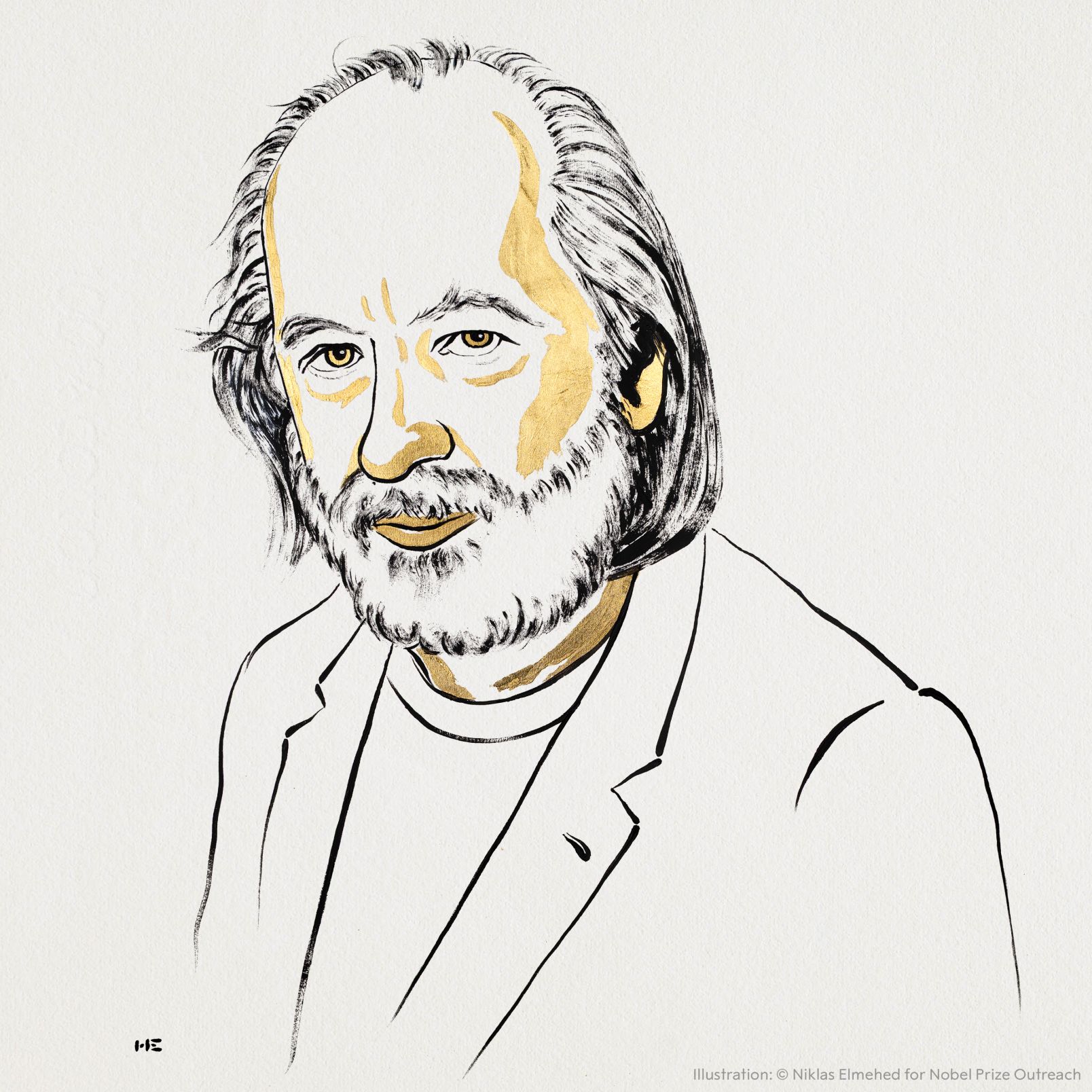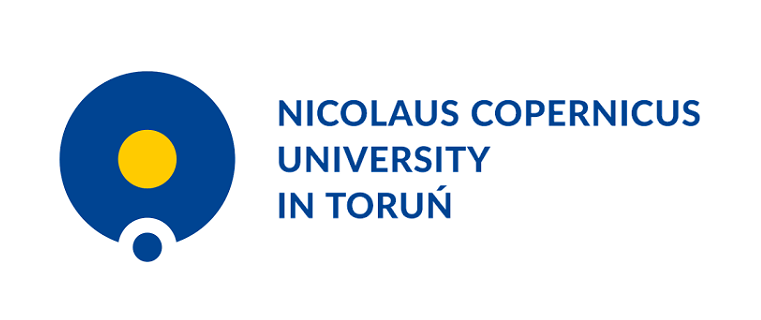Nobel Prize for a Writer of Radical Hope
This year's Nobel Prize in Literature has been awarded to László Krasznahorkai, a Hungarian writer whose work is rooted in the Central European tradition. The decision of the Swedish Academy is explained by Dr. habil. Adam Kola, Professor at the Institute of Literary Studies at Nicolaus Copernicus University.
“I am very happy and proud, because finding myself among so many wonderful writers and poets gives me the strength to continue using my native language — the Hungarian language," said László Krasznahorkai in his first interview after receiving the Nobel Prize. The Swedish Academy honored him “for his moving and visionary work which, amid apocalyptic terror, affirms the power of art."
László Krasznahorkai was born in 1954 in southern Hungary. He graduated from the University of Budapest. In 1985, he published one of his most important works, the novel Satantango, which tells the story of a group of inhabitants of a decaying village. Polish readers also know him from the novels The Melancholy of Resistance and War and War. His literary output includes over 20 books in total — novels, novellas, and short story collections.
Films based on Satantango and The Melancholy of Resistance were directed by Béla Tarr. The Nobel Prize — without a doubt the most prestigious literary distinction in the world — stands as the ultimate recognition of his work, although he has also received many other notable awards, including the International Booker Prize, the Kossuth Prize (Hungary's highest state award), the American Book Award, and the Austrian State Prize for Literature.

fot. Ill. Niklas Elmehed © Nobel Prize Outreach
Dr. habil. Adam Kola, Professor at the Institute of Literary Studies and Vice-Rector for Research at Nicolaus Copernicus University in Toruń, speaks about the work of this year's Nobel Prize laureate in literature and the importance of the Swedish Academy's decision:
The decision of the Nobel Committee to award this year's Nobel Prize in Literature to László Krasznahorkai has a deeply symbolic dimension. The justification reads: “for his moving and visionary work which, amid apocalyptic terror, affirms the power of art." It would be hard to find words more fitting for a writer who, for four decades, has been describing a world in which everything is coming to an end — where only the element of language and literature remains.
The author of Satantango, The Melancholy of Resistance, and War and War has long been regarded as one of the most outstanding creators of Central European literature. In his prose, catastrophe and contemplation merge into one, and his long, spiraling sentences express the rhythm of a world on the brink. From the provincial landscapes of Hungary, Krasznahorkai has created a metaphysical center of Europe — a place where everyday life becomes an apocalyptic mystery and where silence speaks louder than words.
The Nobel Prize for Krasznahorkai is a gesture toward Central Europe. Writers from this region continue to seek a language capable of expressing the distinctiveness of this part of the Old Continent, though it is rare for their voices to be heard. Yet the modern Nobel canon is shaped by authors such as Imre Kertész from Hungary, Wisława Szymborska and Olga Tokarczuk from Poland, as well as Herta Müller, Elfriede Jelinek, and Peter Handke — the latter being German-language writers of multinational heritage, originating from cultural borderlands and peripheries. Each of these authors weaves into their prose the experiences of displacement, memory, alienation, and the search for meaning after the collapse of grand narratives. Krasznahorkai joins their ranks as one who does not seek consolation, but rather meaning amid ruin — one who transforms catastrophe into a form of spiritual insight.
For Hungary itself, his Nobel Prize is more than a triumph of literature — it is a moral affirmation of the independence of a culture that, despite attempts by those in power to appropriate it, remains free in spirit and in language. Krasznahorkai is a writer independent of ideology and the state — a solitary voice, immersed in metaphysics yet free from pathos.
On a European scale, the award for Krasznahorkai is also a reminder that the Nobel Prize in Literature need not be a political gesture, but can instead serve as recognition of art that transcends politics. In times of acceleration and oversimplification, choosing such a demanding and contemplative author is an act of courage — a return to the idea that literature is the last refuge of truth, a truth that cannot be spoken directly.
Just as the Peace Nobel Prize awarded two years ago was a gesture toward the East — toward those who defend memory and truth — so today's Nobel Prize in Literature is a gesture toward the Center, toward that part of Europe which still believes that language can, and must, become a space of freedom.
Central Europe
It is precisely in this space — Central Europe understood not geographically, but discursively, as a place where overlapping traditions, memories, and conflicting identities coexist — that the work of László Krasznahorkai is rooted.
In my book Europe in Polish, Czech, and Croatian Discourse, I wrote years ago that Central Europe is not a region, but a way of thinking about Europe — a place where borders are not lines of division, but zones of tension between East and West, center and periphery, tradition and modernity. It is a cultural borderland where the legacies of the Habsburgs and Byzantium, Catholicism and Orthodoxy, Romanticism and Enlightenment skepticism collide.
Krasznahorkai is a writer of precisely this Europe — one uncertain of its own center, aware of its polyphony and of the impossibility of defining itself unambiguously. His language — stretched, tense, balancing between ecstasy and despair — brings forth what is most essential in Central Europe: the constant oscillation between the longing for meaning and the experience of disintegration, between the democratic ideals professed by the elites and the politicians' drift toward authoritarian temptations.
In this sense, this year's Nobel Prize is not only a distinction for an individual, but also an affirmation of the “Europe in motion" I have written about — a Europe that continually strives to redefine itself in the face of changing histories, languages, and borders.
Hope After the End of the World
There is no place for naivety in the work of László Krasznahorkai. The world of his novels is a post-end world — a world in which history has burned out, religion has fallen silent, and language has eroded. And yet — precisely in this space, in what remains after meaning — something emerges that can be called radical hope, in the sense given to it by the recently deceased philosopher Jonathan Lear, who was affiliated with the University of Chicago.
For Lear, radical hope arises when former forms of life and understanding of the world have collapsed, and yet someone is still able to imagine the possibility of continued existence, even though it is not yet clear what that existence will be. It is a hope without content, without an object, without guarantees — a hope after the end of meaning.
It is precisely at this point that Krasznahorkai's prose is situated. His protagonists — ruined by history, wandering aimlessly through the provinces, struggling with their own language and consciousness — embody this very form of hope. They do not believe that the world can be repaired; yet they persist, they speak, they write. In this way, their speech — seemingly barren — becomes an act of faith that meaning may still reveal itself, even though we do not know how this will happen or what form the process will take.
In Krasznahorkai's work, there is no return to order — neither religious, moral, nor aesthetic — that would dominate and impose unambiguous meanings and values. His language does not rebuild the world; rather, it suspends it in motion, allowing a new possibility to emerge from chaos and repetition. This is precisely the moment of radical hope: the belief that something can be born out of emptiness, that in a world after the end of the world, there still remains a space for creation.
This is what distinguishes his writing from catastrophic nihilism: Krasznahorkai does not proclaim the end, but endures within it, as if waiting for something to speak out of the silence itself. Hope understood in this way is not consolation, but a gesture of courage — an attempt to sustain life in a world that can no longer sustain itself.
That is why the Nobel Prize for Krasznahorkai is not only an award for literature, but also a recognition of spiritual perseverance. His prose — as in Lear's philosophy — tells us that true hope begins only when everything else has ended.
 NCU News
NCU News






 Natural sciences
Natural sciences
 Humanities and arts
Humanities and arts